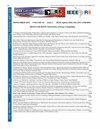A method based on ontologies to support the automatic management of knowledge about Covid-19
IF 1.3
4区 工程技术
Q3 COMPUTER SCIENCE, INFORMATION SYSTEMS
引用次数: 0
Abstract
The importance of integration and retrieval of data is growing more and more in the context of post-COVID-19 analysis because of the increased generation of data in research and resources for studying COVID-19. In this context, the analysis of contagion groups that share some specific feature (for example, people that work together, people with the same clinical manifestation, etc.) may offer remarkable insights about COVID-19. For instance, it can be helpful to recognize the behavior of this disease in accordance with the unique characteristics of a group of people. In this regard, ontologies are a widely accepted alternative for representing and analyzing knowledge. Given their benefits, this paper introduces an ontology-based method to formally describe and analyze information about specific groups of people with COVID-19. Since the ontology was specified in OWL, a formal language based on description logics, it enables the consistency of the represented information to be verified and use automatic reasoning to deduce new knowledge. This approach allows modeling a wide variety of characteristics (symptoms, comorbidities, treatments, etc.) of the individuals and consequently use it to infer the general characteristics of the groups that they belong to. Hence, a reasoner can be applied to perform advanced analysis either to identify patterns in these groups or to find similarity with other groups. To demonstrate the applicability of this method, a case study is described. In addition, the ontology was used to represent and analyze the information of a sample of patients extracted from a public dataset. The results demonstrate the capability of the ontology to represent and analyze information about specific groups of people with COVID-19.基于本体的新冠肺炎知识自动管理方法
由于研究COVID-19的研究数据和资源的增加,在COVID-19后分析的背景下,数据整合和检索的重要性越来越大。在此背景下,分析具有某些特定特征的传染群体(例如,一起工作的人,具有相同临床表现的人等)可能会为了解COVID-19提供非凡的见解。例如,根据一群人的独特特征来识别这种疾病的行为可能是有帮助的。在这方面,本体是一种广泛接受的表示和分析知识的替代方法。鉴于它们的好处,本文介绍了一种基于本体的方法来正式描述和分析特定人群的COVID-19信息。由于本体是在基于描述逻辑的形式语言OWL中指定的,因此可以验证所表示信息的一致性,并使用自动推理来推导新知识。这种方法允许对个体的各种特征(症状、合并症、治疗等)进行建模,从而用它来推断他们所属群体的一般特征。因此,可以应用推理器来执行高级分析,以识别这些组中的模式或查找与其他组的相似性。为了证明该方法的适用性,本文描述了一个案例研究。此外,该本体用于表示和分析从公共数据集中提取的患者样本的信息。结果表明,该本体具有表示和分析特定COVID-19人群信息的能力。
本文章由计算机程序翻译,如有差异,请以英文原文为准。
求助全文
约1分钟内获得全文
求助全文
来源期刊

IEEE Latin America Transactions
COMPUTER SCIENCE, INFORMATION SYSTEMS-ENGINEERING, ELECTRICAL & ELECTRONIC
CiteScore
3.50
自引率
7.70%
发文量
192
审稿时长
3-8 weeks
期刊介绍:
IEEE Latin America Transactions (IEEE LATAM) is an interdisciplinary journal focused on the dissemination of original and quality research papers / review articles in Spanish and Portuguese of emerging topics in three main areas: Computing, Electric Energy and Electronics. Some of the sub-areas of the journal are, but not limited to: Automatic control, communications, instrumentation, artificial intelligence, power and industrial electronics, fault diagnosis and detection, transportation electrification, internet of things, electrical machines, circuits and systems, biomedicine and biomedical / haptic applications, secure communications, robotics, sensors and actuators, computer networks, smart grids, among others.
 求助内容:
求助内容: 应助结果提醒方式:
应助结果提醒方式:


